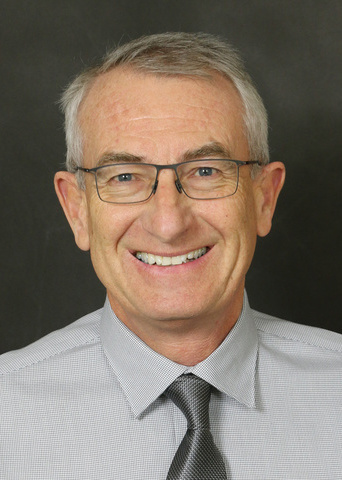
Electrical and computer engineering professor Milan Sonka is part of a multidisciplinary team of University of Iowa engineering and medical scholars working to unravel the mechanics of the “wet” form of age-related macular degeneration, an eye disease that can blur one’s central vision.
Elliott H. Sohn, associate professor of ophthalmology and visual sciences, Sonka, also the Lowell G. Battershell Chair in Biomedical Engineering, and Jon C.D. Houtman, professor of microbiology and immunology, are principal investigators of a National Institutes of Health grant. The intent is to find new targets and therapies for this more severe form of macular degeneration, which effects approximately 2 million Americans.
The neovascular or ‘wet’ form of age-related macular degeneration (nvAMD) is caused by blood vessels that leak fluid under the retina interfering with clear vision in the direct line of sight.
A focal point in the study is matrix metalloproteinase 9 (MMP9), a type of enzyme found in the retinal blood supply. A better understanding of MMP9 could unlock clues to how nvAMD forms and why it persists in some people despite treatment.
Sonka will lead a portion of the study in which artificial intelligence, machine learning, and quantitative image analysis are used to analyze optical coherence tomography (OCT) images in hopes of learning new features and subsequently new treatment approaches associated with different severity of genetic risk for patients afflicted with nvAMD.
Sohn said, "This highly collaborative study brings together a world class team of researchers in immunology, genetics, ophthalmology, and computer engineering to better understand a novel pathway that could allow patients with this debilitating condition to need fewer eye injections and have better central vision."
NIH obligated $540,439 for the first year of the study, which is expected to receive funding of $2.16 million over four years.
Research reported in this proposal was supported by the National Eye Institute of the National Institutes of Health under Award Number R01EY035435. The content is solely the responsibility of the authors and does not necessarily represent the official views of the National Institutes of Health.